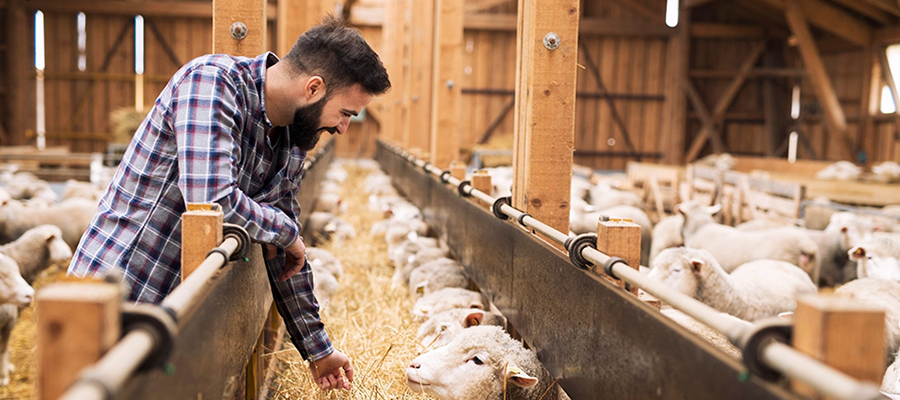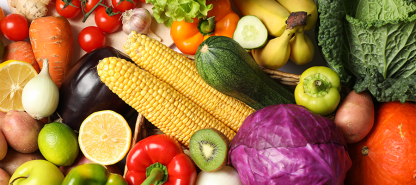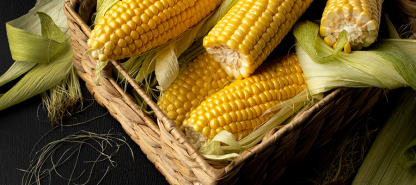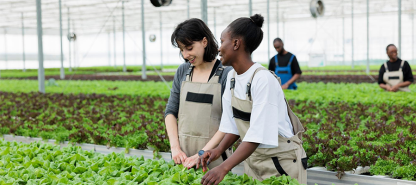
- 28 Aug 2024
The Role of Sustainable Livestock Farming in a Greener Future
Understanding Sustainable Livestock Farming
Sustainable livestock farming is an approach that balances the needs of livestock production with environmental stewardship, animal welfare, and community well-being. As global demand for animal products continues to rise, this method aims to create a more ethical and environmentally responsible framework for raising livestock. Here’s a closer look at the key principles and benefits of sustainable livestock farming:
1. Environmental Stewardship
Sustainable livestock farming practices aim to minimize the ecological footprint of animal agriculture. This includes managing land use to prevent overgrazing, implementing rotational grazing systems to enhance soil health, and reducing greenhouse gas emissions through better manure management.
2. Animal Welfare
Prioritizing animal welfare is central to sustainable livestock farming. This involves providing animals with adequate space, access to natural environments, and humane treatment throughout their lives. Improved welfare leads to healthier animals and better quality products.
3. Biodiversity Preservation
Integrating livestock into diverse farming systems can enhance biodiversity. By combining crops and livestock, farmers can create more resilient ecosystems, improve soil health, and support a wider range of wildlife.
4. Local Food Systems
Sustainable livestock farming often emphasizes local production and consumption. By supporting local farmers, communities benefit from fresher products, reduced transportation emissions, and stronger local economies.
5. Resource Efficiency
Sustainable practices focus on maximizing resource efficiency, including water and feed. Techniques such as integrated crop-livestock systems can help recycle nutrients and reduce waste, leading to more sustainable use of natural resources.
6. Climate Change Mitigation
Sustainable livestock farming practices can contribute to climate change mitigation. By improving management practices, such as optimizing feed efficiency and utilizing agroforestry, farms can lower their carbon footprint and enhance carbon sequestration in soils.
7. Economic Viability
Investing in sustainable livestock farming can lead to long-term economic benefits. Consumers are increasingly seeking ethically produced animal products, allowing farmers to command premium prices for sustainably raised livestock.
8. Healthier Food Products
Sustainable livestock farming often prioritizes natural diets and reduced use of antibiotics and hormones. This can lead to healthier meat, milk, and eggs that are free from harmful residues, benefiting consumer health.
The Benefits of Animal Welfare and Environmental Responsibility
The interconnectedness of animal welfare and environmental responsibility is increasingly recognized as essential for sustainable agriculture and overall ecosystem health. Here are some key benefits of prioritizing both animal welfare and environmental stewardship:
1. Enhanced Animal Health and Productivity
Animals raised with high welfare standards tend to be healthier and more productive. Access to proper nutrition, space, and natural behaviors reduces stress and illness, leading to better growth rates, higher milk production, and improved reproductive performance.
2. Improved Quality of Products
When animals are treated humanely and raised in healthy environments, the quality of meat, dairy, and eggs often improves. Higher welfare practices can lead to better taste, texture, and nutritional value, appealing to health-conscious consumers.
3. Biodiversity Conservation
Sustainable animal farming practices that prioritize welfare often contribute to biodiversity. By integrating livestock with diverse cropping systems, farmers can enhance habitat for wildlife and maintain healthy ecosystems, which are vital for overall environmental stability.
4. Climate Change Mitigation
Practices that emphasize animal welfare, such as rotational grazing, can improve soil health and sequester carbon, helping mitigate climate change. Healthier soils store more carbon and reduce greenhouse gas emissions, contributing to a more sustainable food system.
5. Consumer Trust and Market Demand
Consumers are increasingly seeking ethically produced animal products. By committing to high welfare standards and environmental responsibility, producers can build trust and loyalty among consumers, potentially commanding higher prices and better market positioning.
6. Reduction of Antibiotic Use
High animal welfare standards often lead to lower stress levels and healthier animals, reducing the need for antibiotics. This helps combat antibiotic resistance, a growing public health concern, while ensuring safer food products.
7. Stronger Community Relations
Farmers who prioritize animal welfare and environmental practices often foster positive relationships with local communities. By contributing to local economies and engaging in transparent practices, they can gain community support and enhance their social license to operate.
8. Sustainable Resource Management
Integrating animal welfare and environmental responsibility encourages efficient resource use. Practices such as manure management not only benefit soil health but also reduce pollution, creating a more sustainable cycle of production.
Investing in Sustainable Livestock Farming
Investing in sustainable livestock farming presents an exciting opportunity to contribute to a more ethical and environmentally friendly food system. Here are some innovative and creative ideas to consider when looking to invest in this sector:
1. Agroecological Systems
Explore investments in integrated agroecological systems that combine livestock with crops. For example, you could support farms that utilize livestock to graze cover crops, improving soil health while providing natural fertilizer for subsequent crops. This not only enhances biodiversity but also promotes sustainable nutrient cycling.
2. Vertical Farming and Livestock Integration
Consider projects that integrate vertical farming with livestock production. For instance, investing in facilities that use hydroponic systems to grow feed for livestock can significantly reduce the land footprint and increase feed efficiency. This approach can also provide a year-round supply of fresh feed, reducing costs and environmental impact.
3. Smart Farming Technologies
Invest in innovative technologies that enhance sustainable livestock farming. This could include precision agriculture tools that monitor animal health and behavior using IoT devices, ensuring optimal welfare while minimizing resource use. Drones for pasture monitoring and automated systems for feed distribution can also improve efficiency and sustainability.
4. Alternative Protein Sources
Look into investments in businesses that are developing alternative protein sources, such as insect farming or lab-grown meat. These technologies can provide sustainable protein options with a lower environmental impact compared to traditional livestock farming, appealing to a growing market of eco-conscious consumers.
5. Community Supported Agriculture (CSA) Models
Support community-oriented livestock projects that operate on a CSA model. This can create a direct link between consumers and farmers, encouraging local consumption of sustainably raised meat and dairy products. It also fosters community engagement and provides financial stability for farmers.
6. Education and Training Programs
Invest in educational initiatives that teach sustainable livestock practices to aspiring farmers. These programs could focus on regenerative agriculture, animal welfare standards, and sustainable business practices. Empowering the next generation of farmers with knowledge can lead to widespread adoption of sustainable methods.
7. Cooperative Farming Initiatives
Consider investing in cooperative farming ventures that allow multiple small-scale farmers to pool resources. This can enhance their capacity to implement sustainable practices, share equipment, and market their products collectively, thereby increasing profitability and sustainability.
8. Carbon Farming Projects
Explore investments in carbon farming initiatives that incentivize livestock farmers to adopt practices that sequester carbon. By supporting projects that focus on rotational grazing, cover cropping, and agroforestry, you can contribute to climate change mitigation while promoting sustainable livestock farming.





